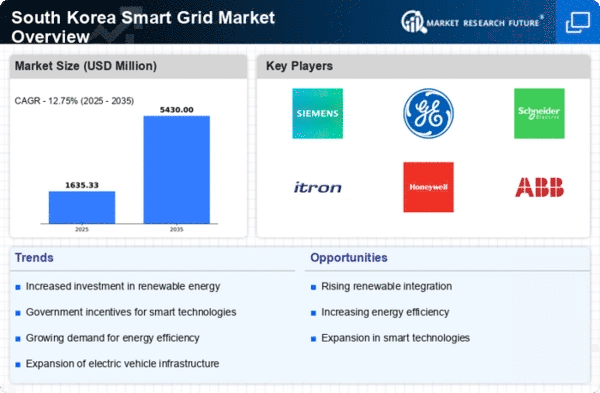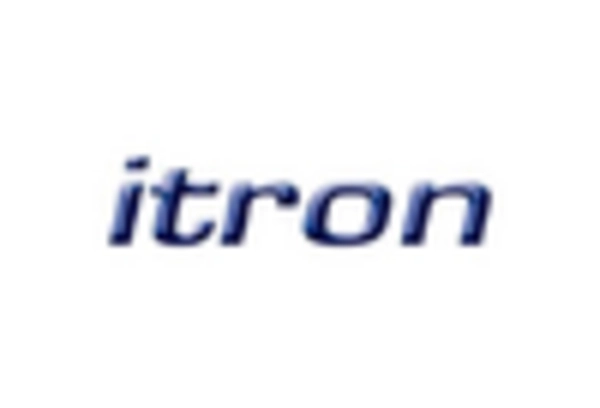Rising Energy Demand
As South Korea's economy continues to grow, the demand for energy is projected to increase significantly. The smart grid market is poised to benefit from this rising energy demand, as traditional energy systems may struggle to meet the needs of a modern, industrialized society. According to estimates, energy consumption in South Korea could rise by approximately 30% by 2030. This surge in demand necessitates the implementation of smart grid technologies that can optimize energy distribution and enhance grid reliability. By integrating advanced monitoring and control systems, the smart grid market can help manage peak loads and reduce energy waste, ultimately leading to a more efficient energy landscape. The ability to respond dynamically to changing energy needs positions the smart grid market as a critical component in addressing future energy challenges.
Consumer Awareness and Engagement
Consumer awareness and engagement play a crucial role in shaping the smart grid market. As South Koreans become more conscious of energy consumption and its environmental impact, there is a growing demand for technologies that promote energy efficiency. Smart meters and home energy management systems are gaining traction, allowing consumers to monitor their energy usage in real-time. This shift towards greater consumer involvement is likely to drive the adoption of smart grid solutions, as individuals seek to reduce their energy bills and carbon footprints. Furthermore, educational campaigns and initiatives aimed at increasing public understanding of smart grid benefits are expected to further stimulate market growth. By empowering consumers with information and tools, the smart grid market can foster a more sustainable energy ecosystem.
Increased Focus on Energy Security
Energy security remains a paramount concern for South Korea, given its reliance on imported energy resources. The smart grid market is increasingly viewed as a solution to enhance energy security by diversifying energy sources and improving grid resilience. By integrating renewable energy sources and enabling demand response capabilities, smart grids can reduce dependence on fossil fuels and mitigate the risks associated with energy supply disruptions. The government has recognized this potential and is investing in smart grid technologies to bolster energy independence. As a result, the smart grid market is likely to experience growth driven by the need for a more secure and reliable energy supply, which aligns with national interests in energy autonomy and sustainability.
Government Initiatives and Policies
The South Korean government actively promotes the smart grid market through various initiatives and policies aimed at enhancing energy efficiency and sustainability. The Ministry of Trade, Industry and Energy has set ambitious targets for reducing greenhouse gas emissions, which necessitates the adoption of smart grid technologies. By 2030, the government aims to increase the share of renewable energy in the energy mix to 20%, thereby driving demand for smart grid solutions. Additionally, financial incentives and subsidies for smart grid projects are likely to stimulate investment in this sector, fostering innovation and development. The government's commitment to smart grid infrastructure is expected to create a conducive environment for market growth, as it aligns with national energy security and environmental goals.
Technological Advancements in Grid Infrastructure
The smart grid market is significantly influenced by ongoing technological advancements in grid infrastructure. Innovations such as advanced sensors, automated control systems, and data analytics are transforming the way energy is generated, distributed, and consumed. In South Korea, investments in smart grid technologies are expected to reach approximately $3 billion by 2025, reflecting a strong commitment to modernizing the energy infrastructure. These advancements not only enhance operational efficiency but also improve the resilience of the grid against disruptions. Furthermore, the integration of Internet of Things (IoT) devices into the grid allows for real-time monitoring and management, which is essential for optimizing energy use. As these technologies continue to evolve, they are likely to drive further growth in the smart grid market, enabling a more responsive and adaptive energy system.
















